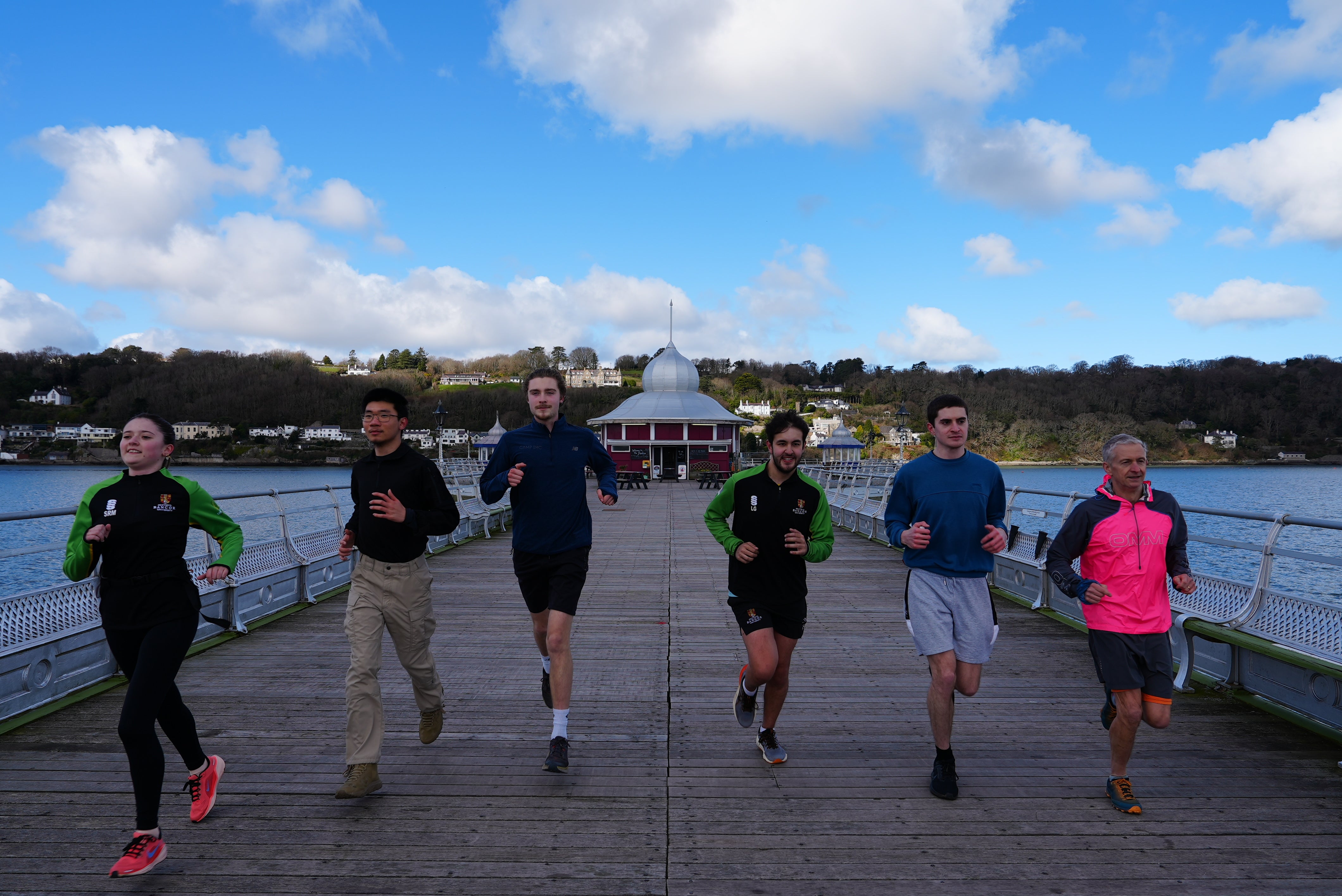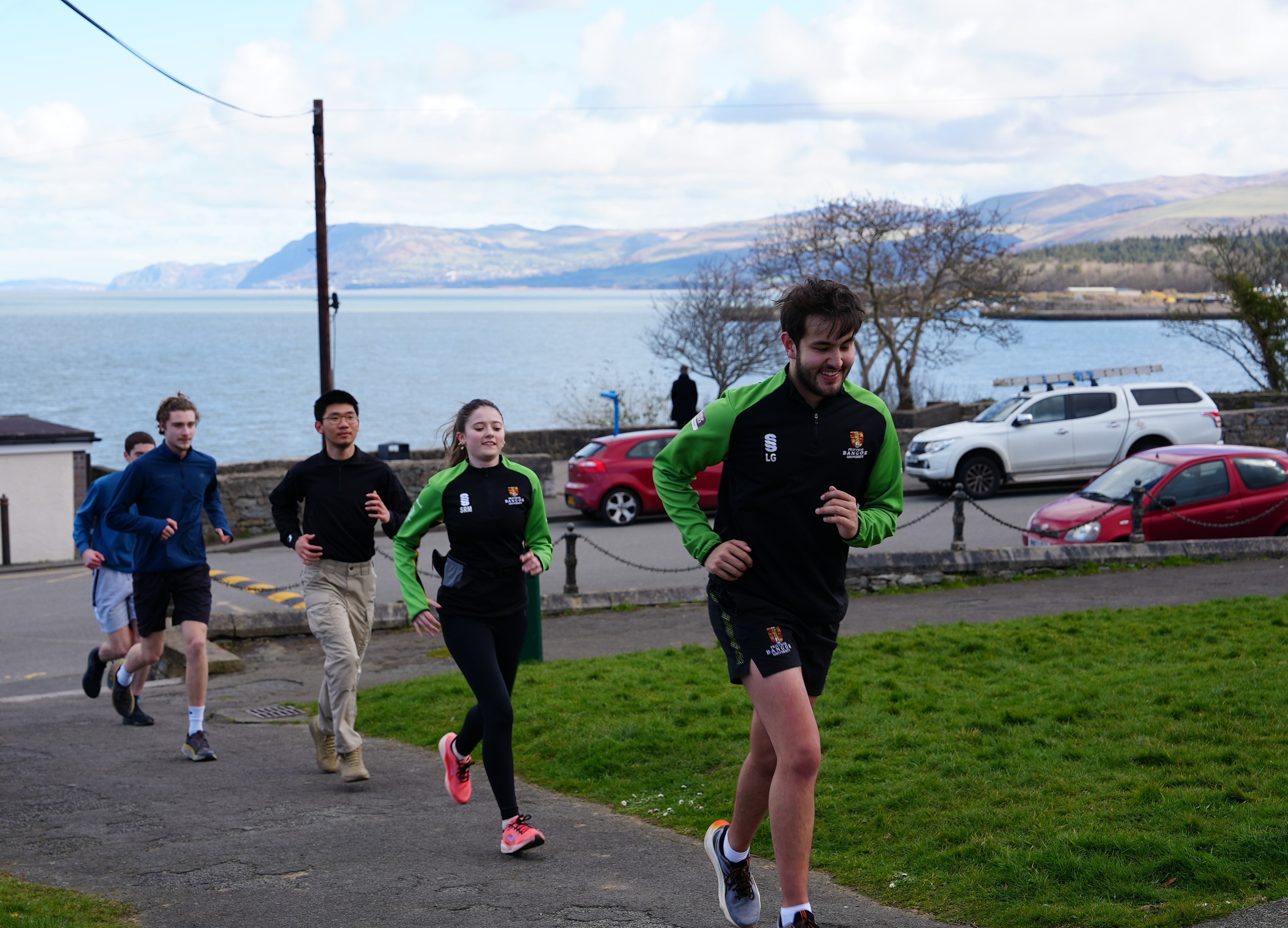ARTICLE AD BOX
Tens of thousands of people have just completed the London Marathon, in many cases raising money for noble causes while testing the limits of their own endurance.
Former Made in Chelsea star Spencer Matthews and comedian Romesh Ranganathan were among the 56,000 people signed up to tackle the 26.2-mile course at this year’s event on Sunday (27 April), which saw athlete Sabastian Sawe of Kenya crowned the winner after crossing the finish line in just 2hr 2min and 27sec.
While for many the feat feels an unattainable dream to add on to an already overly ambitious bucket list of life goals, one university is aiming to turn fantasy into reality.
Bangor University’s “Born to Run” module teaches students the tenets of behavioural psychology and motivation through training them how to run a marathon. The class, taught by banker-turned-psychologist Professor John Parkinson, has been going for almost a decade and has proven both popular and challenging for participants.
“Psychology can teach people about characteristics that are really required [in life],” Parkinson told The Independent. “Things like resilience, grit, mental toughness, setting challenging goals, and then making a plan – an achievable and realistic plan – to achieve those goals, and how to bounce back from setbacks and failure.
“It’s about how to become resilient to overcome those challenges to ultimately achieve the goal that you've set out in life – all the learning that goes on in those challenging times. That was the genesis, that was the drive behind it.”
Inspired by a university in Iowa that similarly taught students how to run a marathon, Professor Parkinson, Professor Fran Garrad-Cole and their colleagues at Bangor decided to embed the technique as part of an optional module for third year psychology students.
“A lot of degrees in the UK are criticised for being just theoretical and not applied so that they don't really help students once they've graduated, gone into the real world and tried to get a job, tried to buy a house, tried to create a career and a life for themselves, where they're going to face failure,” Parkinson continued.

“So, we just thought if we can make this real then it would actually give these students real-life skills that they could then apply to different aspects of their lives.”
Through a blend of theory and practice, Professor Parkinson says that students who complete the module are hopefully prepared to run a marathon. Thomas Williams, 21, is a student on the current cohort. Speaking to The Independent, he says he has taken a lot from the course, although not in the way that one might expect. Despite the focus on motivation, Williams says that learning about self-compassion has had the most long-lasting impact. He completed an ultra-marathon last week, despite the module being far from over.
“I didn't need to be more motivated,” he said. “But it was more understanding how I dealt with feedback and being less self-critical and becoming more self-compassionate.”
He adds: “I developed more of an understanding of what self-compassion was, because originally I think my understanding of self-compassion was just being easier on yourself.

“I would judge myself to quite high standards but what I've discovered self-compassion to be is just doing the right thing for yourself in the moment, whatever that might be, so that's been a great thing to take forward.”
With an increasingly insular world, and a generation of young people still affected by the Covid pandemic, Professor Parkinson says that the teachings of behavioural psychology are more relevant than ever.
“Some Gen Zs are saying, ‘Well, I don't want to talk to people on the phone. I can't do it.’ Because of Covid, it's made people withdraw from the real world. Behavioural psychology says you've just got to get out there and do it. I think it’s actually even more important today than it's ever been.”









 English (US) ·
English (US) ·